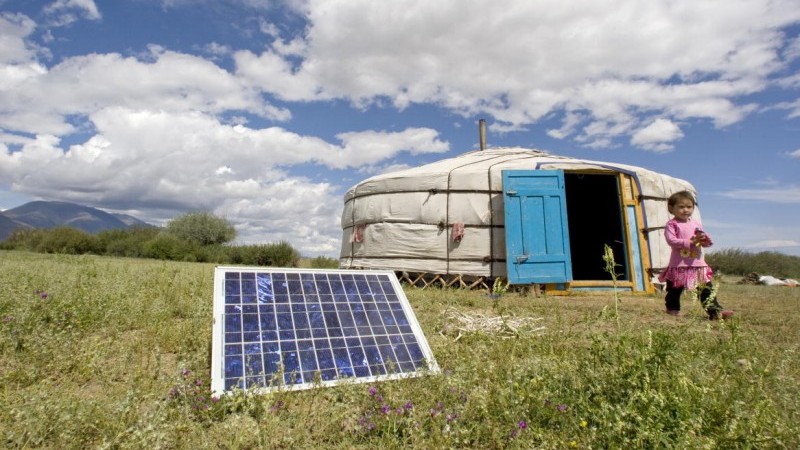The job of steering the world’s major climate finance fund through its troubled toddler phase has been given to an Australian.
Howard Bamsey was selected to be executive director of the Green Climate Fund (GCF) by its board on Thursday after a full day of deliberation in Songdo, Korea.
Bamsey has spent a career developing climate policy in Australia and around the world. He co-chaired the United Nations “Dialogue on Long-term Cooperative Action on Climate Change” and served as Australia’s special envoy for climate change during the country’s brief climate hawk period under the leadership of Kevin Rudd.
Bamsey will have to summon all of his experience for a job he described last year as vital to the very future of the UN climate negotiations.
“The fund must succeed and be seen to succeed to keep developing nations in the game. Otherwise the future of international cooperation on climate change will be in jeopardy,” Bamsey wrote in the Conversation.
Weekly briefing: Sign up for your essential climate politics update
The Paris climate agreement was created just ten months ago and already enough nations have completed the necessary domestic ratifications to bring it into force. But amid the breathless diplomatic highs there is a perennial elephant in the room – money.

Howard Bamsey. Photo: Twitter
The GCF is intended to be a major channel for the rich world to provide assistance to the poor world to cope with the changing climate.
It will be Bamsey’s job to convince wealthy countries to honour their commitments, ensure that the fund is chooses the right projects and get the money flowing.
The fund has already been provided with US$10bn in donations. But in the year since the fund began approving projects, less than one twentieth of that has been committed and just $5.4m has actually been disbursed.
Contrast this with the pledge rich countries have made to release $100bn in climate finance a year by 2020. (This number seems huge until you compare it with global military spending, for example, which is more than 16 times higher.)
In the past, the fund has responded to criticism by arguing that it is important to develop systems for approving the right projects and the right project managers, before releasing billions of dollars in climate finance.
But with more than 100 projects sitting in the pipeline, the fund has become an object of frustration among those countries most vulnerable to the effects of climate change.
The director of the International Centre for Climate Change and Development Saleemul Huq said the newly appointed director would have to win back an increasingly sceptical constituency of countries who have seen their proposals gathering dust.
“I think the biggest challenge is getting their act together quickly,” he said. “[The fund] have had a very hard time recruiting staff and getting up to speed and disbursing money as quickly as they can. They’ve been slow to approve projects and work out all the details. In the meantime they have a rapidly lengthening queue of projects that they have to go through.”
The top of the GCF now has a distinctly antipodean flavour. Bamsey joins another Australian, Ewen McDonald, who is co-chair of the board.
Bamsey succeeds Héla Cheikhrouhou, the fund’s first executive director, who is now Tunisia’s minister for energy, mining and renewables.
To replace her, a search firm assisted the fund to identify 421 potential candidates. On Wednesday, it was reported to the board that this long list was 70% male and 30% female.
